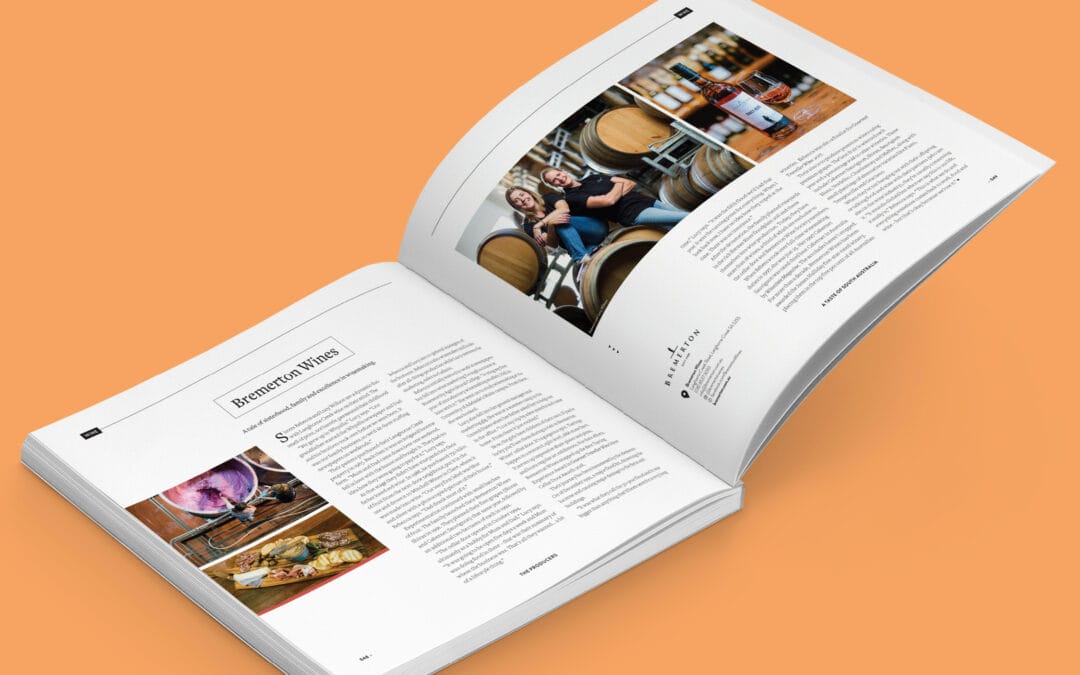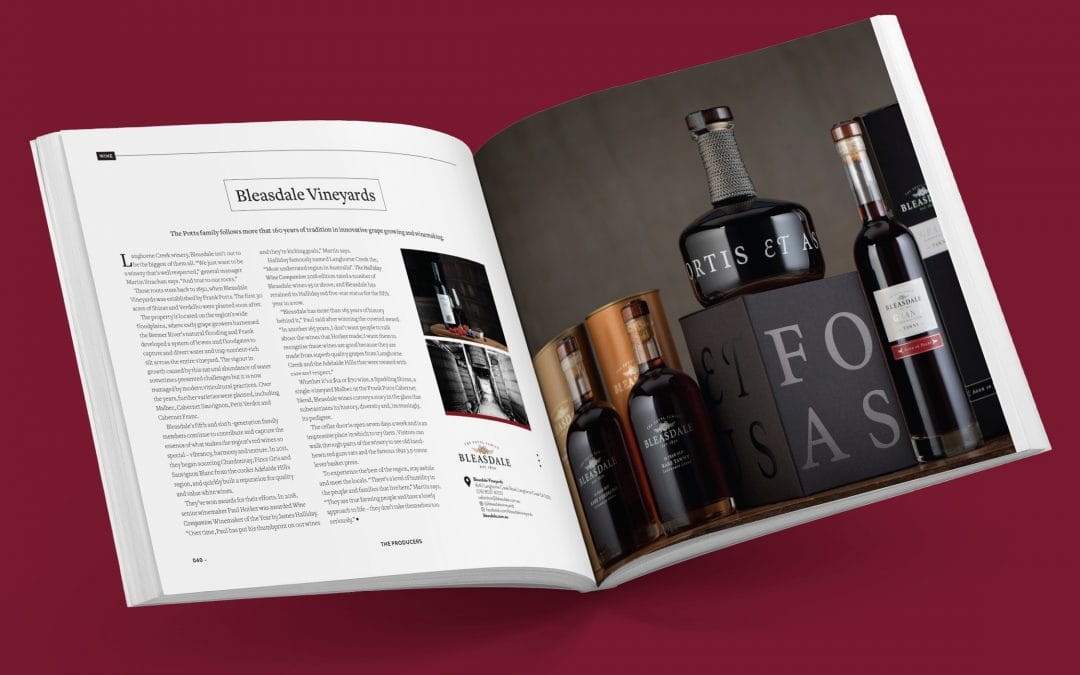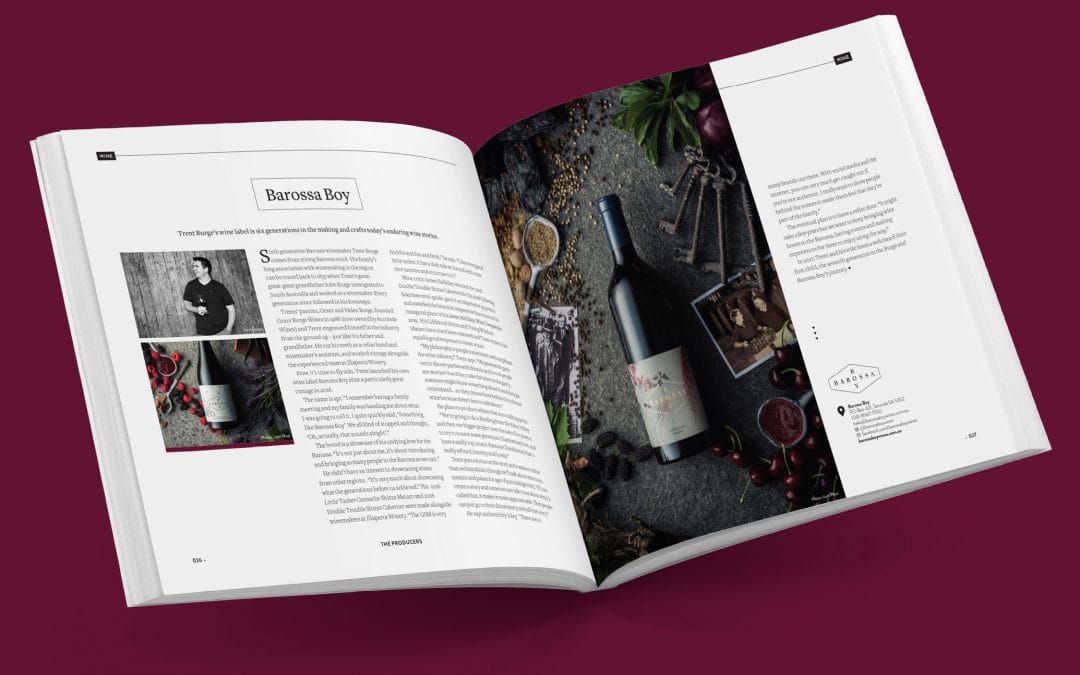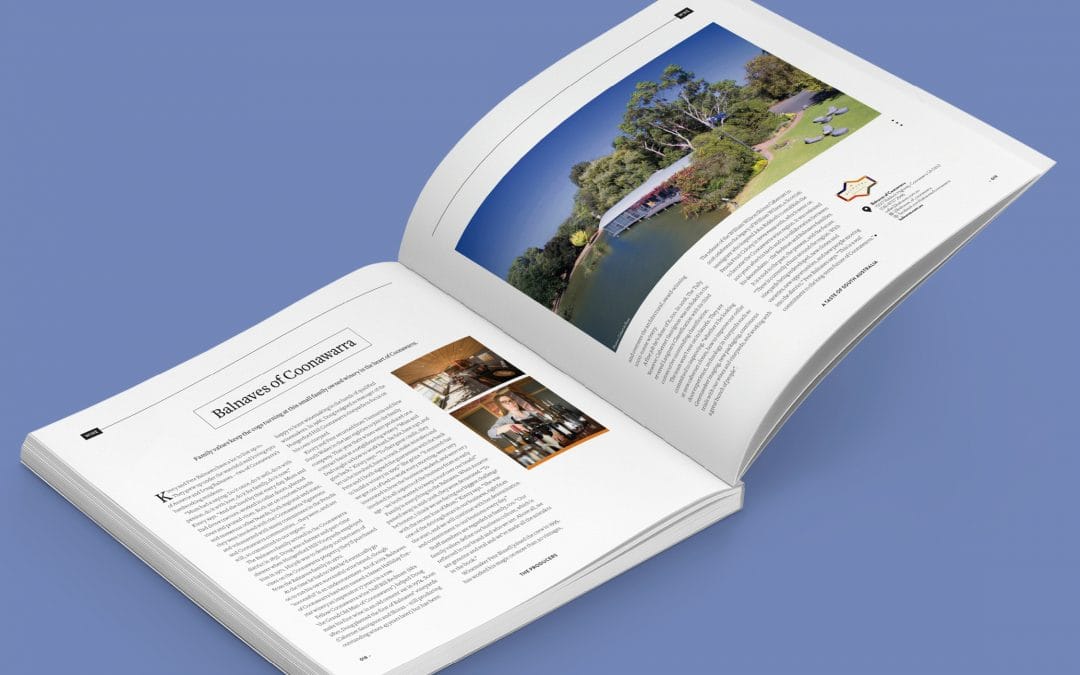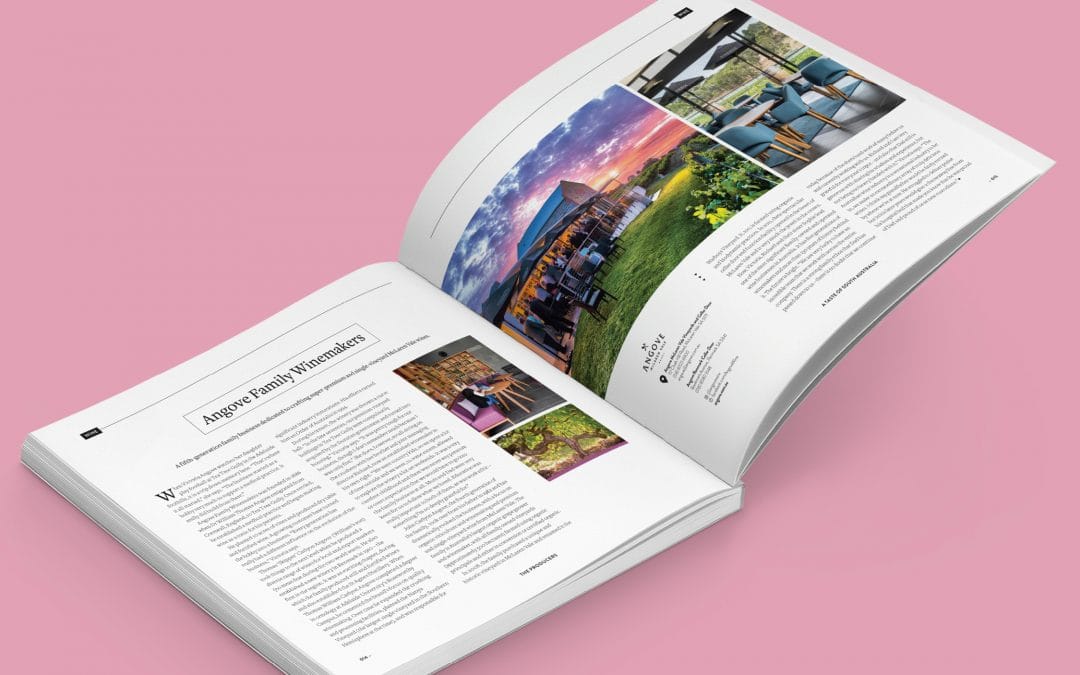At Gorilla we are passionate about our clients & helping them achieve their full potential throughout their 160 years of innovation. Read about how Bremerton Wines has excelled within the South Australian wine industry through the words of Katie Spain. The Producers Book by BudMedia showcases Bremerton Wines & so many more Gorilla clients.
Sisters Rebecca and Lucy Willson are a dynamic duo with Langhorne Creek wine on their mind. The smell of print, not barrels, permeated their childhood
“We grew up in Whyalla,” Lucy says. “Our grandfather started the Whyalla newspaper and Dad and his brothers took over before we were born. It was our family business, so we’d sit there stuffing newspapers on weekends.”
Their parents purchased their Langhorne Creek property in 1985. Back then it was an irrigated lucerne farm. “Mum and Dad came down here one weekend, fell in love with the house and bought it. They had no idea how they were going to pay for it,” Lucy says.
At that stage they didn’t have vineyards but their father loved red wine. In 1988, he purchased 750 kilos of fruit from the next-door neighbour, put it in the ute and drove it to Mitchell Wines in Clare, where it was made into wine. “Our very first label was blue and silver with a photocopied picture of their house,” Rebecca says. “Dad drank most of it.”
Experimentation continued with small batches of fruit. The family launched their Bremerton Wines Shiraz in 1991. They planted their first grapes (Shiraz and Cabernet Sauvignon) that same year, followed by an additional two hectares of each in 1992.
“The cellar door opened in October 1994, ultimately as a hobby for Mum and Dad,” Lucy says. “It was going to be open five days a week and Mum was doing food in there – that was their summary of where the business was. That’s all they wanted… a bit of a lifestyle thing.”
Rebecca and Lucy are co-general managers of the business. Rebecca is also winemaker and looks after all-things production while Lucy oversees the marketing, sales and admin.
Rebecca initially wanted to work in newspapers but fell into wine marketing through a course at Roseworthy Agricultural College. “During my first year of introductory winemaking studies, I fell in love with it.” She went on to study winemaking at the University of Adelaide’s Waite campus. From there, she was hooked.
Lucy also fell into her general manager and marketing gig. She was at a summer camp in the United States when her father asked her to help out in the office. “I cut my trip by a few months and came home. From there it just evolved.”
Now, the girls have children of their own. If you’re lucky you’ll see them during a visit to Bremerton Wines’ cellar door. It’s a gorgeous spot. Tastings happen in a restored, split-level, 1866 stone barn. It serves up impressive share-plates and pizza, and hosts regular art exhibitions. For their efforts, Bremerton Wines snapped up the Best Tasting Experience Award in Gourmet Traveller Wine’s Best Cellar Door Awards 2018.
Their journey has been hammered by the elements. On 18 December 1992, a major flood hit, drowning the lucerne and causing major damage to the farm and buildings.
“It was what they call the 50-year flood and it was bigger than anything that’d been seen for a very long time,” Lucy says. “It was the fifth flood we’d had that year. It was the turning point for everything. When I look back now, I have no idea how they coped at the time. There was no insurance.”
After the devastation, the family planted vineyards in the rich Bremer River floodplain soil and threw themselves into wine production. Today, they have more than 18 wines, a third of which are exclusive to the cellar door and Bremerton Wine Society members.
When Rebecca took over full-time winemaking duties in 1997, she was just 25. Her 1997 Cabernet Sauvignon was rated third best Cabernet in Australia by Winestate Magazine. The accolades haven’t stopped. For more than a decade, Bremerton Wines has been awarded the James Halliday five-star-rated winery, placing them in the top five per cent of all Australian wineries. Rebecca was also a finalist for Gourmet Traveller Wine 2017.
Their aim is to produce premium wines using premium grapes. The best fruit is selected each year and a percentage sold to other wineries. These include Cabernet Sauvignon, Shiraz, Sauvignon Blanc, Verdelho, Chardonnay and Malbec, along with small plantings of alternative varieties like Fiano, Tempranillo and Graciano.
When they’re not hanging out with their offspring or talking food and wine with their partners (who are also in the wine industry), they’re usually consuming it. “It sounds clichéd but when we say this is our life, it really is,” Rebecca says. “This is what we do and everything somehow comes back to work, food and wine – but that’s okay because we love it.”
Gorilla grape bins & barrel racks help so many wineries around South Australia just like Bremerton Wines. Contact us today and we can supply you with all your grape & wine storage needs.



